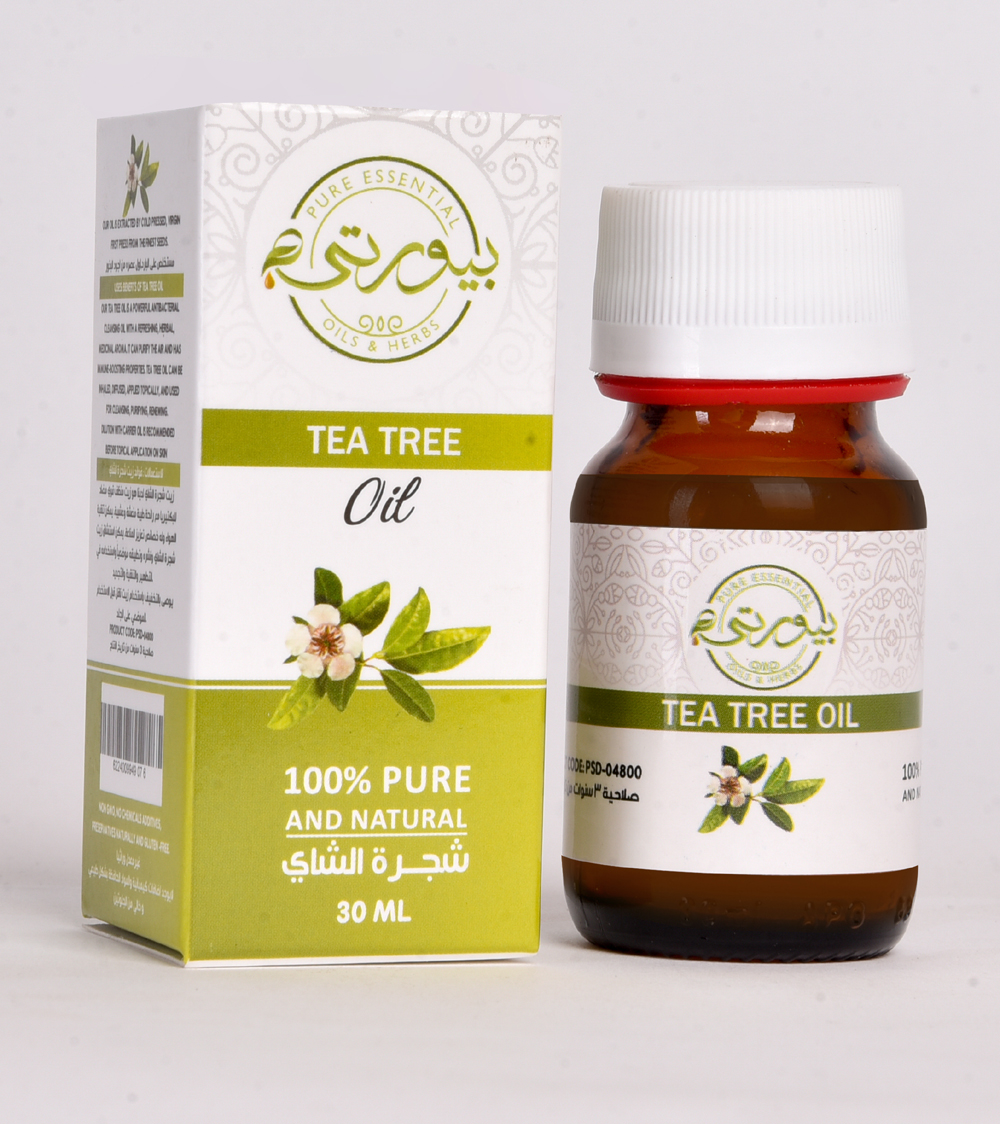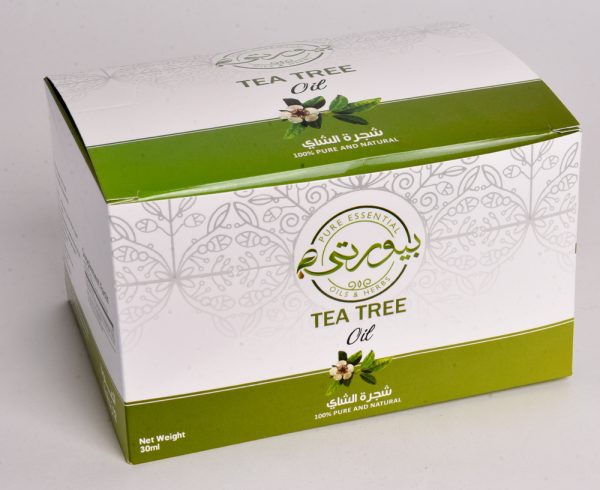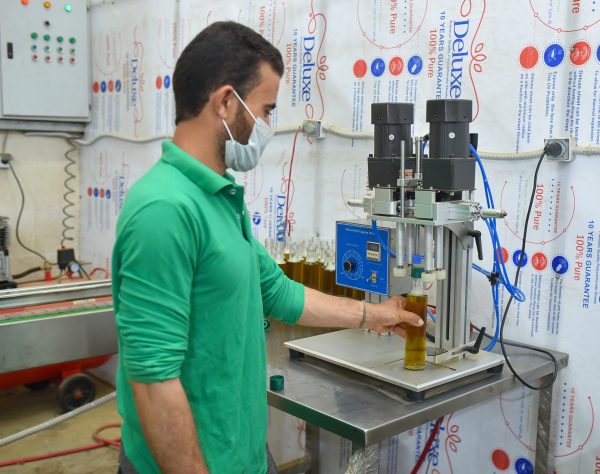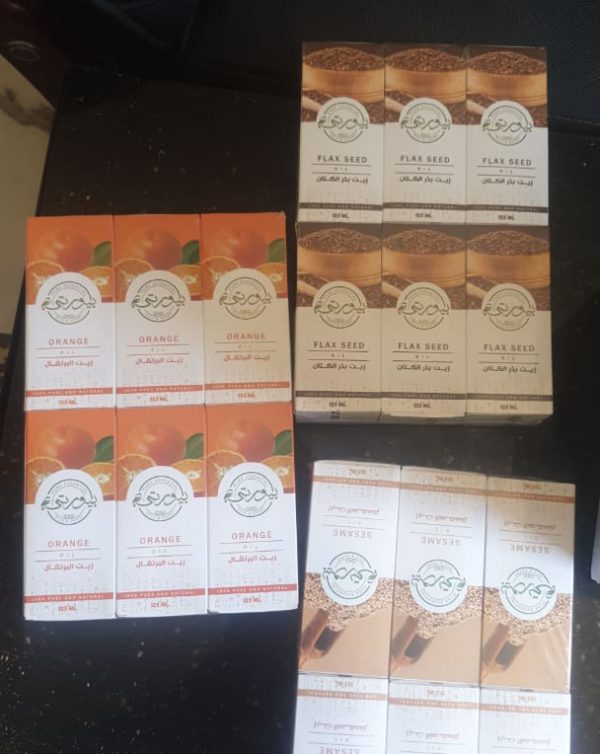Tea Tree Infused Oil (Natural Tea Tree herbs or oil infused in Carrier Oil)
Login to view prices
This Product for Consumer Retail packaging. if you are interested in Bulk Packaging to buy the oil as raw material, Please browse our Raw Materials and B2B Category
What is Infused Oil?
An infused oil, also referred to as a macerated oil, consists of a carrier oil that has been permeated (“infused” or “macerated”) with one or more herbs or the essential oil of that herb. The benefit to using an infused oil as opposed to a plain carrier oil is that the infused oil will contain the properties of both the carrier oil and the herbs or essential oil and is suitable for direct use for consumer without lot of precautions like concentrated essential oils
Some plants do not have much essential oil contained in them, and in those cases, it is rare or impossible to commercially find an essential oil for that plant species. Infusing the herb into a carrier oil, however, can be a suitable way to still use the herb for aromatherapy purposes.
Infused oils generally have an oily feeling that varies depending on the carrier oil used. They also are not as concentrated as essential oils.
====================
Overview
Tea tree oil is an essential oil that has many benefits for the skin. It’s an alternative to conventional treatments.
Tea tree oil can be used to treat conditions and symptoms that affect skin, nails, and hair. It can also be used as a deodorant, insect repellent, or mouthwash. When used topically, tea tree oil can treat certain skin conditions or improve the overall appearance of your skin.
What are its benefits for the skin?
Tea tree oil is effective in promoting healthy skin by soothing and healing a wide range of skin issues. Use tea tree oil with a few precautions:
- You should not apply tea tree oil directly to skin. It’s important to dilute the oil with a carrier oil, such as olive oil, coconut oil, or almond oil.
- For every 1 to 2 drops of tea tree oil, add 12 drops of a carrier oil.
- Also, be careful when using tea tree oil around the eye area. Exposure can cause redness and irritation.
- Before you use tea tree oil, do a patch test to make sure your skin doesn’t react to the tea tree oil.
Dry skin and eczema
Tea tree oil can help soothe dry skin by reducing itching and irritation. Also, it’s been shownTrusted Source to be more effective than zinc oxide and clobetasone butyrate creams in treating eczema.
How to use: Mix a few drops of tea tree oil into a small amount of moisturizer or carrier oil. Apply this mixture to the affected areas immediately after getting out of the shower and at least once more each day.
Oily skin
The antiseptic properties of tea tree oil may contribute to its ability to combat oily skin. A small 2016 study found that participants who used a sunscreen containing tea tree oil for 30 days showed improvements in oiliness.
How to use: Mix a few drops of tea tree oil into your toner, moisturizer, or sunscreen. You can add two drops of tea tree oil to bentonite clay to make a mask.
Itchy skin
The anti-inflammatory properties of tea tree oil make it useful in relieving the discomfort of itchy skin. It soothes the skin and can also help heal infections that cause itchy skin.
A small 2012 study foundTrusted Source that tea tree oil was effective in reducing itchy eyelids. An ointment containing 5-percent tea tree oil was massaged onto the eyelids of the participants. Sixteen of the 24 participants eliminated their itching completely. The other eight people showed some improvements.
How to use: Mix a few drops of tea tree oil into a moisturizer or carrier oil and apply it to your skin a few times per day.
Inflammation
The anti-inflammatory effect of tea tree oil helps to soothe and relieve painful and irritated skin. It may also help to reduce redness and swelling.
Research supports that tree oil reduces inflamed skin due to skin sensitivity to nickel. This study used pure tea tree oil on the skin but it’s usually advised that you dilute tea tree oil with a carrier oil before applying it to the skin.
How to use: Add 1 drop of tea tree oil to a carrier oil or moisturizer and apply it to the affected area a few times per day.
Infections, cuts, and wound-healing
The antibacterial properties of tea tree oil make it an effective wound healer.
According to a 2013 study, tea tree oil helps to heal wounds caused by bacteria. Nine of the 10 people who used tea tree oil in addition to conventional treatment showed a decrease in healing time compared to conventional treatment alone.
How to use: Add 1 drop of tea tree oil with a wound ointment cream and apply as directed throughout the day.
Hair and scalp treatment
You can use tea tree oil to treat dandruff by removing chemicals and dead skin cells from the scalp. Using tea tree oil on your hair may help it to stay healthy and moisturized, promoting optimal growth.
How to use: Apply a mixture of tea tree oil and a carrier oil to your hair and scalp. Allow it to stay in your hair for 20 minutes. Then use a tea tree oil shampoo that contains 5-percent tea tree oil. Massage it into your scalp and hair for a few minutes before rinsing. Follow with a tea tree oil conditioner.
Find tea tree oil shampoos and conditioners.
Acne
Tea tree oil is a popular choice for treating acne because of its anti-inflammatory and antimicrobial properties. It’s thought to calm redness, swelling, and inflammation. It may even help to prevent and reduce acne scars, leaving you with smooth, clear skin.
How to use: Dilute 3 drops of tea tree oil into 2 ounces of witch hazel. Use it as a toner throughout the day. You can use a face wash, moisturizer, and spot treatment containing tea tree oil as well.
Psoriasis
Scientific research supporting the use of tea tree oil for psoriasis is lacking. However, anecdotal evidence suggests that tea tree oil may be useful in treating symptoms of psoriasis, such as infection and inflammation, while boosting immunity.
How to use: Dilute 1 to 2 drops of tea tree oil into a small amount of a carrier oil. Gently apply it to the affected area several times per day.
===============
What are carrier oils?
Carrier oils and essential oils are made from plants. Carrier oils are used to dilute essential oils and “carry” them to your skin. That’s because essential oils are potent and can cause irritation when applied directly to your skin.
Most carrier oils are unscented or lightly scented and don’t interfere with an essential oil’s therapeutic properties. They may be used alone or with other oils to nourish your skin.
What examples of carrier oils we use to make our infused oils?
1. Coconut oil
Coconut oil is an edible oil made from the meat of mature coconuts. It’s available in refined or unrefined varieties. Unrefined coconut oil comes from fresh coconut meat. It’s not processed with chemicals and retains its coconut aroma and flavor. Refined coconut oil comes from dried coconut meat, also called copra. It’s bleached and deodorized to remove contaminants, as well as the distinct coconut aroma and flavor. Refined coconut isn’t all-natural and isn’t recommended for use as a carrier oil.
Uses: Coconut oil contains skin-nourishing fatty acids and polyphenols, which make it a great carrier oil for massage oils and skin care preparations.
2. Jojoba oil
Jojoba oil comes from the seeds of the jojoba plant. It has a delicate, nutty aroma. Technically, jojoba isn’t an oil, but a wax with powerful moisturizing properties. It’s thought to closely mimic sebum, the skin’s natural oil. Using jojoba oil may help reduce the skin’s oil production in acne-prone people by making the skin think it’s produced enough oil.
Uses: Jojoba oil absorbs easily in the skin and doesn’t clog pores. This makes it a good carrier oil option for massage oils, facial moisturizers, and bath oils.
3. Apricot kernel oil
Apricot kernel oil is made from apricot seeds, also known as kernels. It’s an emollient oil high in fatty acids and vitamin E. It absorbs easily into the skin and has a slightly sweet, nutty scent. You can buy edible apricot kernel oil, or apricot kernel oil for cosmetic use only.
Uses: Apricot kernel oil is thought to help soften and calm irritated, itchy skin. Use it as a carrier oil to make massage oils, bath oil, and hair care preparations.
4. Sweet almond oil
Sweet almond oil has a strong, nutty aroma. It’s an edible oil made from the kernels of sweet almonds. The oil is lightweight and absorbs easily, and is a great moisturizer for dry skin.
It’s also used in general aromatherapy, but its strong scent may mask an essential oil’s aroma.
Uses: Sweet almond oil is one of the most popular carrier oils for skin care. It’s great in massage oils, bath oils, and soaps.
5. Olive oil
Olive oil comes from pressed olives. It’s best known as a healthy, edible oil with a fruity aroma, but it’s also used in aromatherapy as a carrier oil.
Extra-virgin olive oil is the preferred variety for aromatherapy and skin care preparations. Olive oil’s scent may interfere with the scent of some essential oils.
Uses: It’s packed with fatty acids and plant sterols, which make it great for cleansing and moisturizing dry skin. Use olive oil as a carrier oil for massage, facial cleansers, hair care, and homemade soaps.
6. Argan oil
Argan oil is made from kernels found inside the fruit of argan trees, which are native to Morocco. The oil is edible and is traditionally used to nourish the body inside and out. It has a nutty aroma and is rich in vitamins A and E, and monounsaturated fatty acids.
Uses: Argan oil can help treat dry skin and hair, wrinkles, and skin inflammation. This makes it a terrific carrier oil for general skin care and massage oils.
7. Black seed oil
Black seed oil is made from the Nigella sativa plant. Although it’s lesser known than other carrier oils, it’s richTrusted Source with unsaturated and saturated fatty acids. It’s also thought to have anti-inflammatory abilities.
Uses: Black seed oil is often used as a folk remedy to soothe skin conditions including eczema, acne, and psoriasis. With this in mind, it’s a great choice for facial care, massage oils, and general skin care.
=================================================
Quotation:
· Quantity: There minimum order per each packaging type. kindly contact us to know more details and discuss the best options for you
· Specification: 100% natural and Pure quality Organic or Conventional
· Documentation: COA, MSDS, TDS,.. Kindly see more information tab in the product page to see all documents available
· Payment terms: TT in advance to Our bank account
· Lead time: Shipping through 10 days from receipt of the payment.
· Sea Shipping Time: 35 days
· Air shipping time: 10 days
Branding Services
We also can do customized packaging for you to bottle whatever size you like. We can help in designing labels, selecting good bottles, and packaging. We deliver integrated solutions under your brand..
-
Login to view prices
-
-
-
-


















